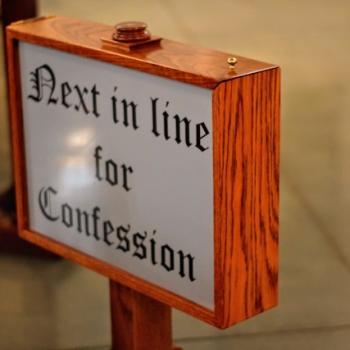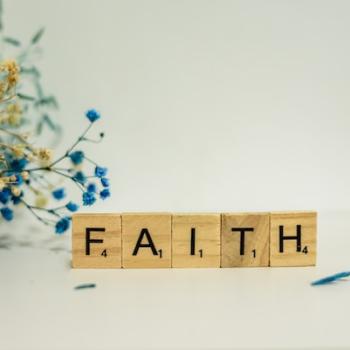
Unconditional Love and Forgiveness
As Christians, we’re challenged to love and forgive unconditionally. Sometimes, it’s easier said than done. Navigating toxic and narcissistic relationships isn’t easy. Sometimes, the other person is a parent or a family member; sometimes, it’s a spouse or co-worker. Regardless, it is challenging at best to navigate and work things out in such relationships.
Jesus told his followers to “love their enemies and pray for those who persecute them” Matthew 5:44. Following this can be very difficult, especially when the other person is negative.
It’s important to understand that forgiveness doesn’t mean that you’re condoning such toxic behaviors; forgiveness releases you from the burden of holding onto your anger and resentment. Colossians 3:13 teaches us that it will allow us to move forward without bitterness and resentment building up in our lives.
Setting Boundaries
Proverbs 4:23 advises us to guard our hearts, for everything flows from our hearts. It’s important to set boundaries to help protect our emotional and mental well-being. This means learning when to say “No” to tolerating toxic behaviors.
We must also learn how to stop enabling others to take advantage of us and their toxic behaviors. It’s a vicious cycle that we must break. Sometimes, the most loving thing we can do in such a situation is to say, “No, simply.” After this, we must step back and allow the natural consequences to occur.
We may have to revisit this several times with some people, while others will ‘get it’ the first time we say “no.” This, too, is normal, especially if someone has been taking advantage of you for a long time. They want to test the boundaries and see if you’re going to stand firm on your “no.”
Signs Of A Toxic Relationship
- Lack of respect
- Constant criticism
- Manipulation
- Jealousy
- Possessiveness
- Emotional abuse
- Lack of support
- Gaslighting
- Drama
- Isolation
- Dishonesty
- Physical abuse
- Lack of personal growth
- Feeling drained
- Mentally fatigued
- Blame shifting
- Lack of respect for boundaries
- Controlling finances
If you recognize these signs in your relationship, seeking help and support is important. This could include seeing your pastor, a trusted friend, a Christian counselor, a family member, therapist, or in extreme cases, you may need to flee the relationship entirely. If you’re physically in danger, please get help immediately. You can call 800.799.SAFE (7233). Or You can find online help here.
Self-Reflection and Humility
Before judging another, we need to remove the plank from our own eyes. Matthew 7:5. I’ve heard this stated in many different ways:
- Not my monkey, not my circus.
- Not my problem.
- Not my issue.
- Deal with it.
The most important lesson we can learn is to check our own reactions and actions before judging anyone else. Sometimes, in a toxic relationship, we’re fueling the fire. Learning to recognize this can be a huge step in our personal growth.
Seek Support
If you hang out with skunks, you’re eventually going to begin smelling like a skunk. Seek support from like-minded people. Choose a church support group a strong community of like-minded friends, and ask for prayer and wisdom.
You may wish to consider counseling. You may wish to ask for prayer. Many mental health professionals are more than qualified to help you in seeking support. They can offer you wisdom and guidance from a psychological and spiritual perspective.
Cast Your Cares Upon God
In Philippians 4:6-7, we’re encouraged to cast our cares upon God. Pray for strength, wisdom, and discernment in dealing with toxic people. It’s so easy to worry and fret about things. However, this verse is very clear that we should give our worries to God and trust in Him.
Trusting in God’s Ultimate Plan will help us trust Him with all our hearts. Proverbs 3:5-6. Sometimes, in our hurry to make everything perfect, we forget to let go and let God. We take it back when we think that we can handle it. Or we might say something like, “Okay, God, Thanks for taking care of that for me; I’ve got it now.” and try to take it back.
Remember, when we ‘let go and let God, ’ we are trusting in Him to take it over for us and let God deal with it. Sometimes, this is easier said than done.
Walk A Mile In Their Shoes
Before passing judgment on another, we must consider things from their angle. Walk a mile in their shoes. No, this doesn’t mean that their actions are excused; it just means that maybe there are extenuating circumstances that we should consider.
Stop for a moment and ask yourself some questions:
- Why is this person so toxic?
- Is there a way I can empathize with them?
- Am I praying for them, for healing? Or am I being selfish in my prayer?
As Christians, we should be praying for healing and transformation, and we need to forgive. Again, that doesn’t mean we have to be a doormat and allow them to walk all over us. Remember, forgiveness is for our benefit, not theirs. Without forgiveness, we can become bitter; when bitterness sets in, there’s no room for God’s love.
Know When To Let Go Of A Toxic Relationship
Anyone who has been in a Twelve Step Program knows the Serenity Prayer.
It goes like this:
God, Grant me the serenity to accept the things I cannot change,
The courage to change the things I can,
and the wisdom to know the difference.
Sometimes, we need to remember to pray this. Some people aren’t going ever to stop being toxic. Sometimes, they will change; sometimes, we need to accept that they’re never going to change, and we need to forgive them and walk away.
Some relationships are just irreparable and toxic. Jesus withdrew from situations where his message was not received. Matthew 10:14. Sometimes, we have to walk away as an act of self-love. Remember that every situation is unique. What works well on one toxic person may not work at all on another. Seek His guidance. Consult with a pastor or a trusted Christian counselor to help you clarify His guidance and wisdom.













